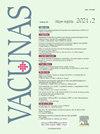治疗乳腺癌的多表位疫苗的最新进展
Q3 Medicine
引用次数: 0
摘要
由于基因突变和各种非遗传因素,乳腺癌(BC)仍然是癌症相关发病率和死亡率的主要原因之一。传统的治疗方法往往会导致严重的副作用和复发风险。最近,免疫疗法已经成为一种很有前途的替代疗法,可以延长生存时间,提高生活质量。多表位疫苗通过多个表位诱导强烈的免疫反应,靶向各种肿瘤抗原,并将不良反应降至最低,已显示出前景。基因组学和蛋白质组学技术的进步使得能够确定用于靶向疫苗设计的关键抗原。免疫信息学和反向疫苗学改进了表位定位,允许选择表位,促进强大的免疫反应。结合多种抗原和强效佐剂的合成肽疫苗已显示出增强的免疫原性和更强的抗肿瘤反应。本综述概述了用于治疗BC的多表位疫苗的发展,确定了2019年至2024年期间超过18项研究:9项处于计算机设计阶段,4项处于临床前测试阶段,2项处于I期临床试验阶段,3项处于II期临床试验阶段。这些研究评估了28种免疫原性靶抗原,显示出有希望的疗效和安全性。持续的研究和合作将加速有效的癌症免疫疗法的发展。本文章由计算机程序翻译,如有差异,请以英文原文为准。
Recent update on multi-epitope vaccine development for treating breast cancer
Breast cancer (BC) remains one of the leading causes of cancer-related morbidity and mortality, owing to genetic mutations and various nongenetic factors. Traditional treatments often induce severe side effects and recurrence risk. Recently, immunotherapy has emerged as a promising alternative, offering prolonged survival and improved quality of life. Multi-epitope vaccines have shown promise by inducing strong immune responses through multiple epitopes, targeting various tumor antigens, and minimizing adverse effects. Advancements in genomic and proteomic technologies have enabled the identification of key antigens for targeted vaccine design. Immunoinformatics and reverse vaccinology have improved epitope mapping, allowing the selection of epitopes that prompt robust immune responses. Synthetic peptide vaccines combining multiple antigens, along with potent adjuvants, have demonstrated enhanced immunogenicity and stronger antitumor responses. This review provides an overview of the development of the multi-epitope vaccine for treating BC, identifying over 18 studies from 2019 to 2024: 9 are in the in silico design stage, 4 in preclinical testing, 2 in phase I clinical trials, and 3 in phase II clinical trials. These studies evaluated 28 immunogenic target antigens, showing promising results in efficacy and safety. Continued research and collaboration will accelerate the development of effective cancer immunotherapies.
求助全文
通过发布文献求助,成功后即可免费获取论文全文。
去求助
来源期刊

Vacunas
Medicine-Infectious Diseases
CiteScore
3.90
自引率
0.00%
发文量
138
审稿时长
62 days
期刊介绍:
Sin duda una de las mejores publicaciones para conocer los avances en el campo de las vacunaciones preventivas, tanto en el ámbito de la investigación básica como aplicada y en la evaluación de programas de vacunaciones. Su alta calidad y utilidad la ha llevado a estar indexada en los prestigiosos índices IME y SCOPUS.
 求助内容:
求助内容: 应助结果提醒方式:
应助结果提醒方式:


